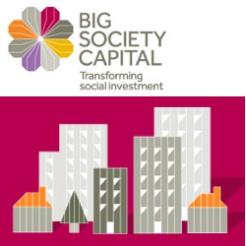The Prime Minister has officially launched Big Society Capital at the London Stock Exchange today.
But sector commentators have warned that funds funnelled through the £600m wholesaler may not be accessible to small charities.
Big Society Capital is a wholesaler who will lend to social intermediaries who will go on to lend to social enterprises and charities. Sir Ronald Cohen, chair of Big Society Capital, says it will aim to achieve a 4 – 5 per cent return on its investments.
It will be capitalised with a total of £600m. An estimated £400m of this will come from unclaimed cash left dormant in bank accounts for over 15 years and £200m will come from the UK’s four largest high street banks Barclays, Lloyds, HSBC and RBS as part of the ‘Merlin’ agreement.
The Merlin Banks are investing permanent equity in Big Society Capital. They will own a maximum of 40 per cent of BSC shares (10 per cent each), but will always remain a minority shareholder with their collective voting rights capped at 20 per cent.
Small charities 'priced out'
Sector bodies, including Social Enterprise UK, Navca, New Philanthropy Capital, NCVO, Impetus Trust and Social Investment Scotland, have welcomed its launch.
But Joe Irvin, chief executive of Navca, has warned that if interest rates on loans to the social sector are too high, small charities will be priced out.
John Low, chief executive at the Charities Aid Foundation echoes these concerns: “With banks unwilling to lend to them, social investment will provide a vital source of money,” he says. “But this money must come with affordable interest rates otherwise charities will not be able to afford it. Equally as important, Big Society Capital must be clear about the social impact its investments are having and sometimes this will mean accepting a lower financial return".
Pharoah: Bias towards safe lending
Cathy Pharoah, professor of charity funding at Cass Business School, says that Big Society Capital will be a “hard card to play” at a time of spending cuts:
“Government is hoping that specialised new forms of ‘social lending’, such as through Big Society Capital, will stimulate non-profit sector growth and open up new opportunities.
“This will be a hard card to play at a time when income from public sector contracts is shrinking, removing a major source of the collateral that would underpin debt finance.”
She adds that Big Society Capital will have a bias towards "safe lending" and will not be able to help smaller charitable projects dealing with high-risk benficiaries:
“As a private sector body, allbeit with a ‘locked-in’ social mission, Big Society Capital has to maintain long-term sustainability, and although its role is only to support other finance intermediaries who will carry frontline risk, ultimately there will be a bias towards safe lending. Big Society Capital will attract investors who want market rates of return while doing some social good, and its funding will go to projects with good track records in attracting substantial contracts from government or funds from the Big Lottery.
“It will not be able to help small innovative social projects dealing with high needs and high risk clients or service areas where social returns may be high and economic returns low. Its main value may be less in stimulating a new form of investment or asset class, but as a lever for re-configuring mainstream public welfare provision through helping new providers enter the market.”









